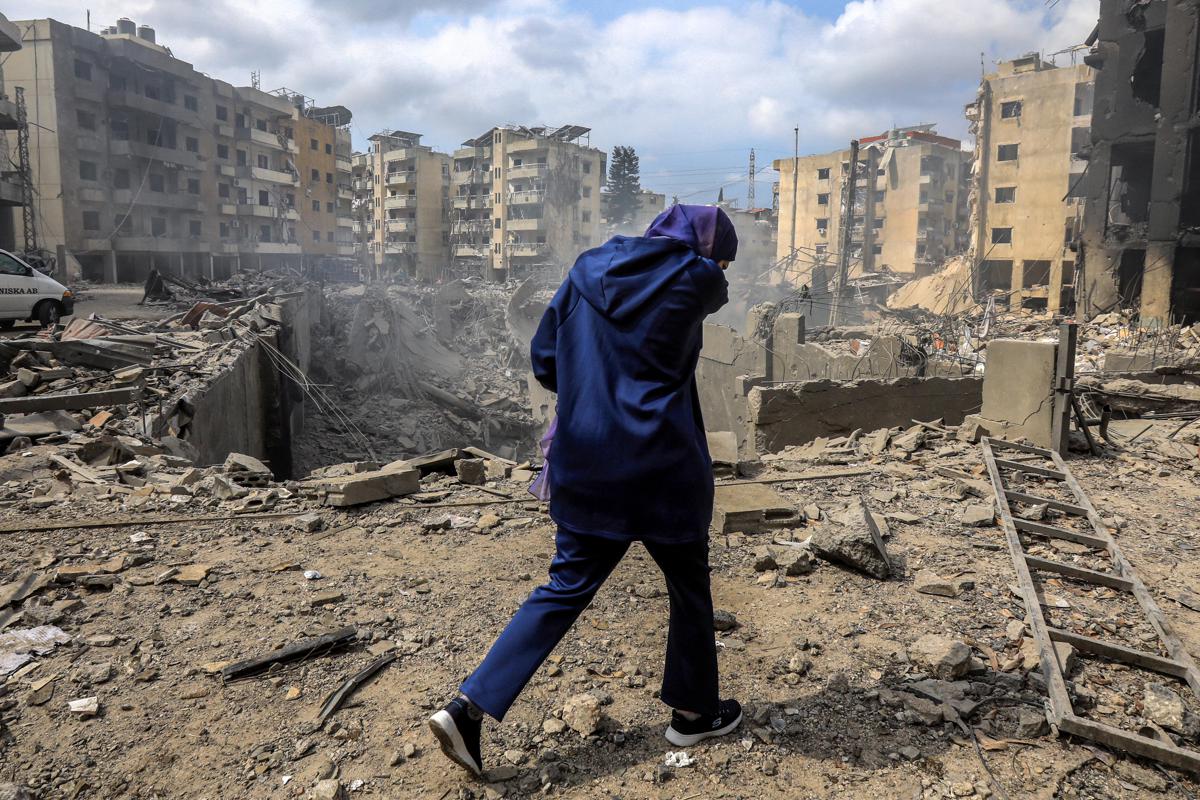(Adnkronos) – As Israel’s war on militant group Hezbollah rages in Lebanon, the United Nations has urged more international funding to alleviate a growing humanitarian crisis and has called for an urgent ceasefire in the crisis-hit country, where the conflict has already affected 1.2 million people.
“During a three-day visit to Lebanon, we witnessed the devastation and sensed people’s fear and confusion,” UNICEF Deputy Executive Director Ted Chaiban and WFP Deputy Executive Director Carl Skau said in a statement on Tuesday.
“For them, the future remains uncertain as long as their country is under fire. The war that the world wanted to avoid in Lebanon is now happening and has already triggered a catastrophe.”
Chaiban and Skau said they visited shelters and informal tent encampments, spoke with communities that have been impacted by the conflict and held talks with government officials and civil society partners who are “working around the clock” to respond to the population’s needs.
“Each person had a story – one of forced displacement and multiple struggles. We also visited the Masnaa Checkpoint where hundreds of thousands have crossed into Syria, further complicating the humanitarian response,” Chaiban and Skau stated.
Families are living “in perilous circumstances” amid the escalating conflict, Chaiban and Skau reported.
“And as the conflict worsens, the psychological toll on the population, particularly among children and youth, is increasing,” the UN officials said.
“Almost every child in Lebanon has been impacted in some way. Many have been victims of bombardments, losing loved ones, their homes, access to education and are facing an uncertain future in possibly deeper poverty,” they said.
Around 1.2 million people have been impacted by the conflict, which has had a “significant” effect on vulnerable communities,” the Chaiban and Skau underlined.
Nearly 190,000 people who have been uprooted from their homes are currently sheltering in over 1,000 facilities, while hundreds of thousands more are seeking safety with family and friends, the officials stated.
“In response, UNICEF and WFP have been working hand in hand to deliver vital support across Lebanon. WFP prepositioned food at strategic locations, effectively meeting the needs of approximately 200,000 people daily with ready to eat food and cash.”
With government ministries and partners, UNICEF is delivering essential support to children and their families– primary health care, water and hygiene kits, mattresses and blankets – and psychosocial support services to address the mental health concerns of children being rolled out in shelters, said Chaiban and Skau.
The two officials praised the “remarkable solidarity” among Lebanese communities, who are supporting each other during the conflict.
However,”the scale and severity of the needs, coupled with pre-existing vulnerabilities and pressure on social services” is straining Lebanon’s social fabric, Chaiban and Skau warned.
The international humanitarian response must therefore also assist vulnerable hosting communities in the fragile country and be sensitive to their concerns, said the officials.
Local families who have fled immediate danger still feel at risk, Chaiban and Skau said, noting that parents continue to worry about their children’s safety including in newly designated shelters.
“There is an urgent need for their protection, as specified by international humanitarian law,” the senior officials stressed.
“International humanitarian law must be respected. All parties must prioritise the protection of civilians and civilian infrastructure,” they said.
“This includes protecting schools, hospitals, water systems, and ensuring safe passage for civilians fleeing conflict zones.”
Needs are increasing and while aid agencies keep providing immediate aid, more international support is vital to allow them to scale up their response, Chaiban and Skau said.
The two officials appealed to nations for additional and unconditional funding and an “urgent” ceasefire in Lebanon.
“We urge the international community to get behind these efforts and collaborate in keeping ports and supply routes open and call on parties to the conflict to ensure these routes are protected to enable unimpeded access to humanitarian assistance,” they said.
“Above all else, the children and families of Lebanon need this war to end… A ceasefire is urgent,” the statement concluded.




